Dermatology negligence claims seek compensation for your suffering due to a medical professional’s lack of duty of care. Skin conditions can be painful and very stressful for the patient, and not getting proper care when you need it only makes the situation worse.
You make a dermatology negligence claim when you receive care that is less than what another professional would provide. You may suffer months or years of unnecessary pain and discomfort due to dermatology negligence, and you can claim compensation for the poor treatment.
A No Win No Fee medical negligence solicitor can make your claim for dermatology negligence and get you the medical negligence compensation you deserve.
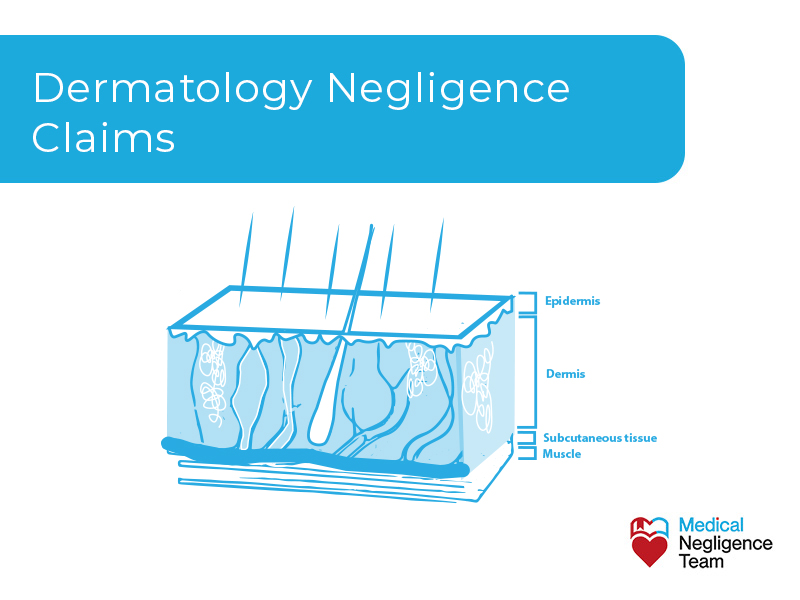
Table of content
What is Dermatology Negligence?
Dermatology negligence is when you receive less than professional care from a doctor or consultant when you have an issue with your skin.
Dermatology negligence could make your skin condition a lot worse and make it develop into one that lasts many years.
The misdiagnosis of skin cancer could miss the early chances of dealing with melanoma and make your cancer worse.
You expect care and treatment of a high standard when you visit any medical professional. To not receive it with a skin condition and for you or a loved one to suffer as a result could be clear dermatology negligence.
Your No Win No Fee medical negligence solicitor can look at your case and see if you have a valid dermatology negligence claim for compensation.
Common dermatology negligence claims
Common dermatology negligence claims range from the wrong treatment to mistakes with cosmetic dermatology to the misdiagnosis of a skin condition. Dermatology negligence may see further harm done to your skin or even a doctor missing your signs of skin cancer.
Some of the common dermatology negligence claims are:
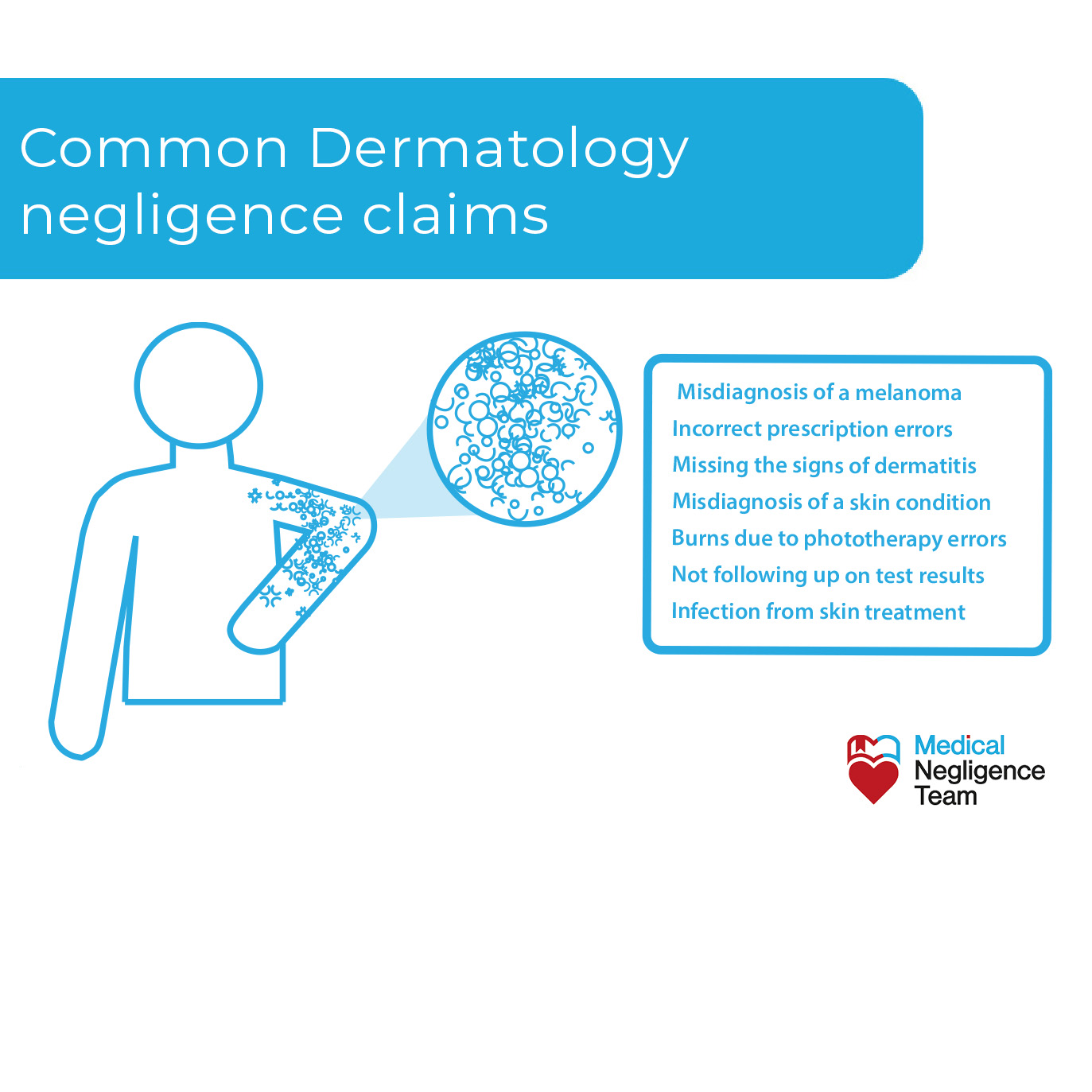
Misdiagnosis of melanoma
Misdiagnosis of melanoma can miss the vital chance to deal with your skin cancer at an early stage. Melanoma can develop quickly; if not spotted at a dermatologist appointment, it could become a serious issue.
Melanoma may first present as a small mole. If your doctor or dermatologist does not do the correct tests to identify it, you could live with skin cancer for a time without knowing it.
The misdiagnosis of melanoma misses the chance to diagnose the cancer and get an early start on your cancer treatment.
Incorrect prescription errors
Incorrect prescription errors can delay the treatment of a skin disorder and, in many cases, worsen your dermatitis.
A prescription error may happen when the pharmacist gives you the wrong medication, the incorrect dose or makes an error in the instructions.
Your dermatologist or doctor could prescribe the wrong medication, which instead of easing the conditions, irritates the skin and causes you even more discomfort.
Missing the signs of dermatitis
Missing the signs of dermatitis should never happen, but doctors do, and patient safety is compromised. Dermatitis is a skin condition associated with workers in the cleaning and other service industries. It presents as a nasty rash with peeling and itchy skin.
The symptoms of dermatitis are obvious and should not be missed by a doctor or dermatologist giving you their full attention.
Misdiagnosis of a skin condition
Misdiagnosis of a skin condition will lead to it getting worse and delaying the correct treatment of your actual condition. Your doctor should diagnose what is wrong or send you for further tests for confirmation if they are not sure.
The misdiagnosis of a skin condition is medical negligence, and you may be able to claim for compensation.
Burns due to phototherapy errors
Burns due to phototherapy errors can be painful and leave you needing further treatment or suffering from permanent scarring. Phototherapy can be a beneficial treatment for certain skin conditions, but if not used properly can do a lot of damage.
You should not suffer phototherapy errors if your doctor or technician uses a machine which is properly maintained and calibrated and uses it properly.
Not following up on test results
Not following up on test results is a common cause of medical negligence cases. The doctor orders further tests and does not follow up on the results, either by not reading them or following what they recommend.
By not following up on test results, the doctor may miss your skin condition or make an error in prescribing treatment.
Infection from a skin treatment
Infection from a skin treatment may happen when the doctor does not follow hygiene protocols or does not follow treatment instructions. Infection can spread quickly through broken skin and make the condition worse or do damage to internal organs.
Failing to prescribe antibiotics can cause an infection to get worse or spread through treatment.
All common dermatology medical malpractice cases come from the doctor not giving you professional treatment. You may claim compensation for dermatology negligence to cover your costs and damages now and into the future.
Compensation for dermatology negligence
You can claim compensation for dermatology negligence in amounts from the low £10,000s to over £1 million in some cases.
The compensation varies depending on several factors, and dermatology negligence claims sometimes see very high awards, such as when conditions like skin cancer develop after a misdiagnosis.
Compensation amounts in dermatology negligence claims can be:
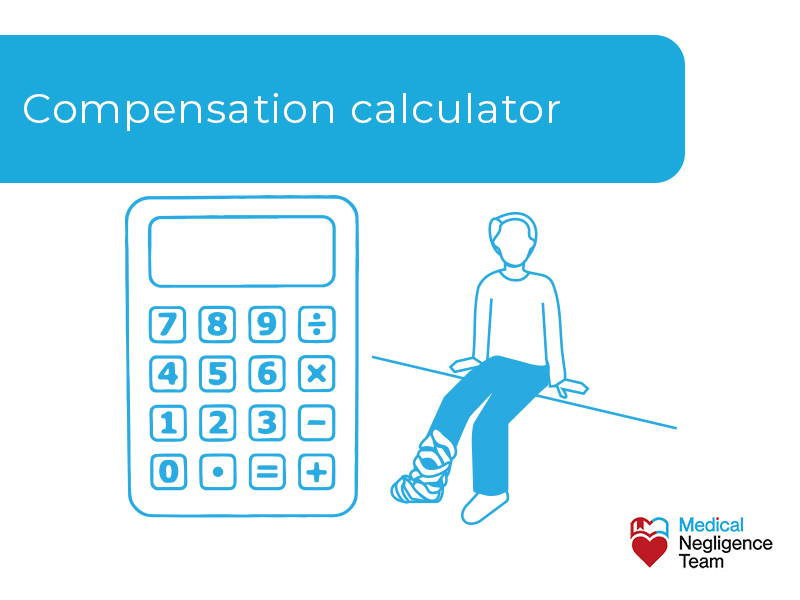
All amounts are approximate and are only a guide to what is possible in dermatology negligence claims. Figures can be high in some claims as you or a loved one could need long-term care and may face medical bills for life. You claim for these care expenses and the medical costs into the future.
As in all medical negligence claims, each case is dealt with on merit and how much the patient suffers due to the dermatology complications.
A No Win No Fee medical negligence solicitor will be the one to advise you on a dermatology negligence claim. They will know from experience what your case may be worth and how to make a successful claim.
Your No Win No Fee medical negligence solicitor will handle your dermatology negligence claim for compensation and for all damages incurred.
Our Process
Our team members have a higher career win rate with a 75% success rate on NHS letters of claim, compared to an industry average of 54.5%.
Enquiry
The first step is to get in touch and tell us what went wrong. It’s free and easy. Call our 24-hour helpline: 0800 246 1122 or request a callback here.
Medical Evaluation
Once you have spoken with our team we’ll let you know how we can help. Typically the next step is to obtain your medical records for us to review.
Legal Letter
Once all your medical records have been received they will be reviewed by a medically & legally qualified member of our team. If there is evidence of negligence we will send a letter of claim to the negligent party outlining your compensation claim.
What can you claim for when you sue for dermatology negligence?
You can claim compensation for any damages that occurred when you sue for dermatology negligence.
There are two types of compensation damages due when suing for any type of medical negligence: General damages and Special damages.
You deserve compensation to cover all losses, including loss of life, medical costs, and long-term care needs.
When you or a loved one suffers from the effects of dermatology negligence, you make a claim for dermatology negligence compensation.
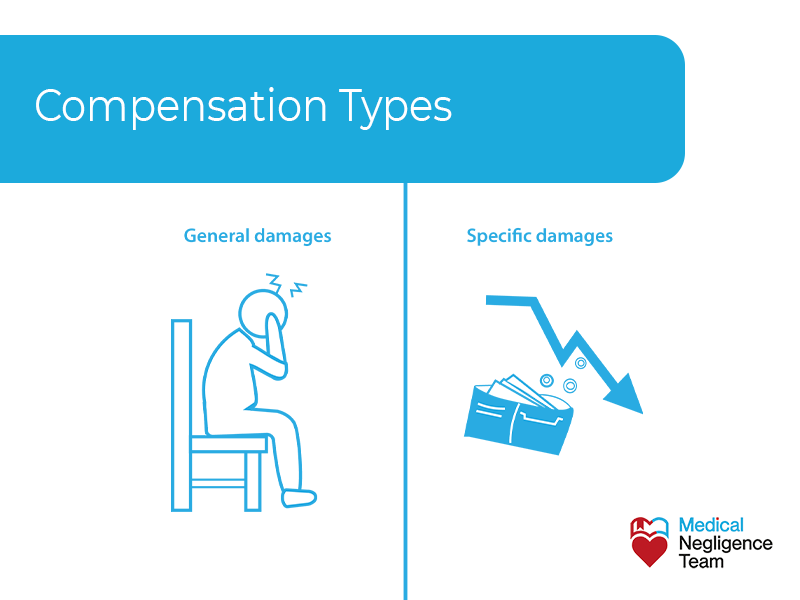
Potential outcomes of medical negligence
The potential outcomes of medical negligence in dermatology are the skin condition getting worse, the patient undergoing unnecessary suffering and even the spreading of skin cancer.
You trust your doctor to make a correct and prompt diagnosis of your dermatological condition. They should send you for further tests or refer you to a dermatologist if they suspect something serious.
To misdiagnose skin cancer is serious medical negligence. When a doctor misses the signs of melanoma, they delay the correct treatment and leave the skin cancer to develop.
Skin cancer can quickly spread through the body. What starts off as a small mole can often kill the patient if the diagnosis is delayed or missed completely.
Your No Win No Fee medical negligence solicitor can make your dermatology negligence claim against those responsible and get you compensation for the suffering.
Who is responsible for dermatology negligence?
A medical professional is responsible for dermatology negligence. The GP who missed your symptoms of dermatitis or the consultant who thought your melanoma was a small mole are responsible for your dermatology negligence.
The medical professional owes you a duty of care when dealing with your dermatology problems. You may suffer dermatology negligence if they are negligent with that duty of care.
Dermatology negligence can happen in an NHS hospital or clinic, and the NHS Trust who runs the hospital may be responsible for the negligence. NICE guidelines deal with how an NHS doctor should deal with dermatology conditions, and for a doctor to do otherwise could be medical negligence.
Medical negligence is treatment below an acceptable standard by a medical professional. Instead of putting the care needed into your dermatology treatment, they have misdiagnosed a condition or missed the signs of cancer, which is clear medical malpractice.
You may need to undergo years of treatment to correct the errors of dermatology negligence. By behaving less-than-professionally, the doctor risks your health, and the effects could be with you for life.
Medical professional liability claims can help with getting your life back on track again.
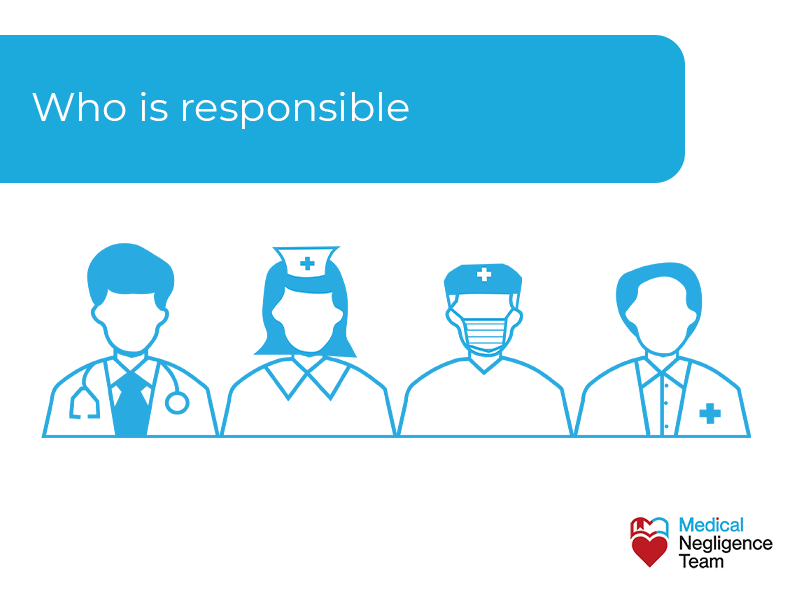
Dermatitis Negligence
Dermatitis negligence is when the doctor or dermatologist misses the signs of dermatitis. It can happen in the early stages of the condition, or the negligence may happen later when the dermatitis has developed.
Dermatitis is a skin condition caused by exposing the skin to chemicals, dirty water and other irritating substances such as cleaning products and cosmetics. People who work in kitchens, factories, hairdressing and the beauty business and in most occupations dealing with liquids can contract dermatitis.
Dermatitis symptoms include rash, red skin, itchiness, blistering and peeling skin. A misdiagnosis can leave a simple rash to develop into a severe skin condition which could be with you for life.
Your No Win No Fee solicitor will guide you through the steps in making a dermatology negligence claim.
What are the steps involved in making a dermatology negligence claim?
The steps involved in making a dermatology negligence claim go from seeking medical advice to issuing court proceedings.
The steps are a part of any successful compensation case, and settlement can happen at any stage in the process.
Your medical negligence solicitor will do the rest when you follow the steps correctly and gather all the facts and figures.
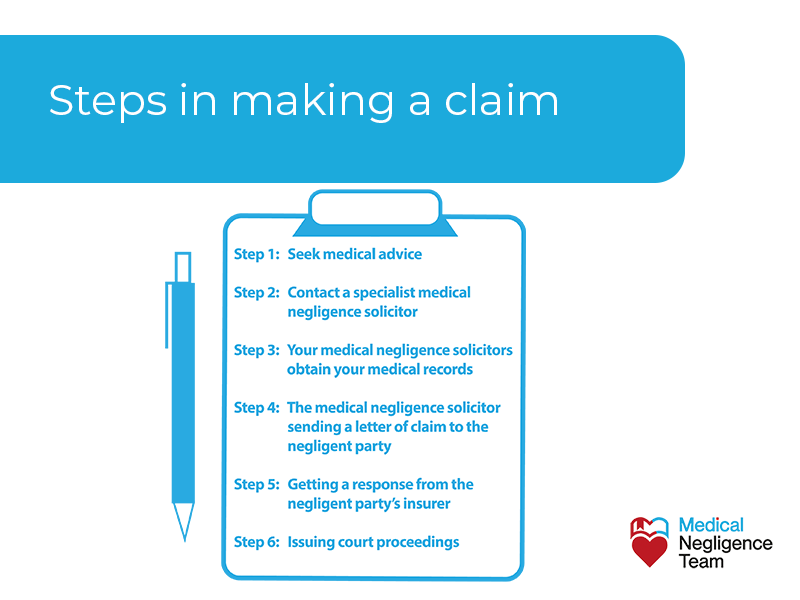
No Win No Fee solicitor
Using a No Win No Fee solicitor is the only way to a successful dermatology negligence compensation claim. Your No Win No Fee medical negligence solicitor will not charge you for a claim you do not win.
Always have a fee agreement in place before engaging a medical negligence solicitor. If they start talking of a ‘win fee’ or a ‘success fee,’ you should walk away. The negligent party insurers should pay all fees.
The medical negligence solicitor should also operate a 100% Compensation Guarantee scheme. When you win the case, all the money awarded should go to you, not the solicitor.
You are the one who suffered the dermatology negligence, and you deserve the compensation to get your life back to normal.
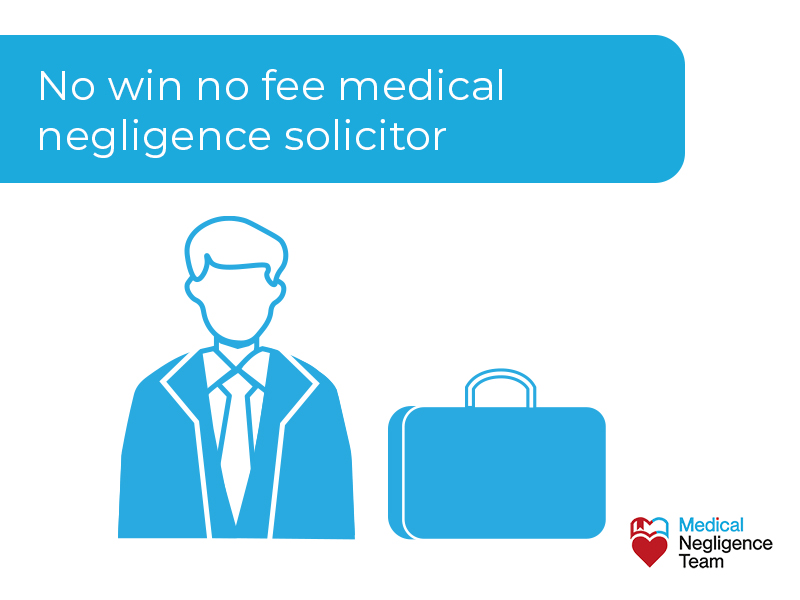
How long do I have to make a claim for dermatology negligence?
You have three years to make a claim for dermatology negligence. All medical negligence claims are subject to limitation periods.
For example, in England and Wales, medical negligence claims must generally be brought and court proceedings issued within three years of the injury or three years of knowledge of the facts giving rise to the dermatology negligence claim.
If someone has passed away, it is the date of death if the limitation period has not expired at the date of death.
Children not under a disability typically have until they reach 21 to start a dermatology negligence claim or court proceedings.
Persons with a disability, who lack capacity, are not subject to any limitation period.
Can I make a medical negligence claim against the NHS?
Yes, you can make a medical negligence claim against the NHS. Suing the NHS for negligence is not unusual. People sue the NHS for compensation for medical negligence and receive the money they deserve for the negligent treatment.
There are between 8,000 and 10,000 successful medical negligence claims against the NHS each year—amounts in compensation claims awarded against the NHS range from £1000 to over £10 million.
The amount of compensation you receive covers minor injuries such as scarring to serious life-threatening negligence, which leaves you with long-term care needs.
We trust in and use the NHS daily and do not expect negligence. It happens, though, and the NHS has a dedicated team to handle medical negligence compensation claims, called NHS resolution.
NHS Resolution has a responsibility to treat patients who seek compensation fairly. Patients pay for the NHS through their taxes, and for that they deserve respect and the best medical treatment.
Contact The Medical Negligence Team
Contact the Medical Negligence Team today to discuss your dermatology negligence claim for compensation. We have both the legal and medical experts to guide you along the steps to a successful medical negligence claim for compensation.
At the Medical Negligence Team, we fight every compensation claim on a No Win No Fee basis. You will not be out of pocket for an unsuccessful claim.
We have a very high success rate and a reputation for a speedy and successful resolution to all medical negligence cases.
Our 100% Compensation Guarantee puts all the money you win into your pocket. You or your loved one suffered dermatology negligence and deserve every penny of the compensation claim.
Contact us at the Medical Negligence Team for all your medical negligence needs.


